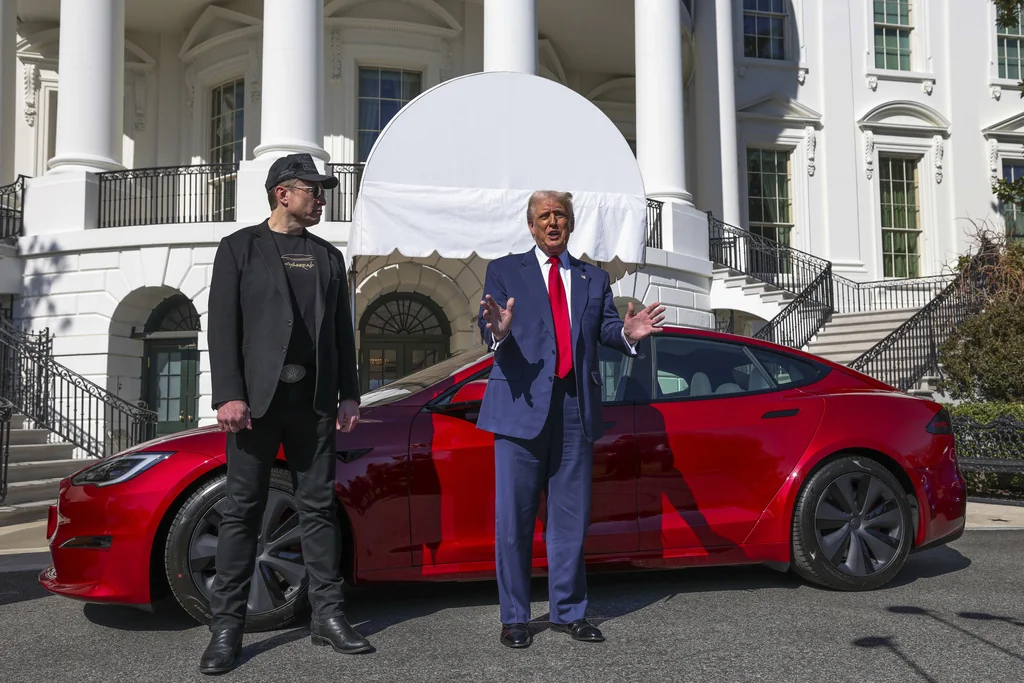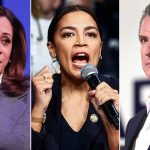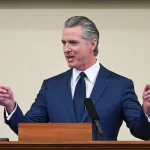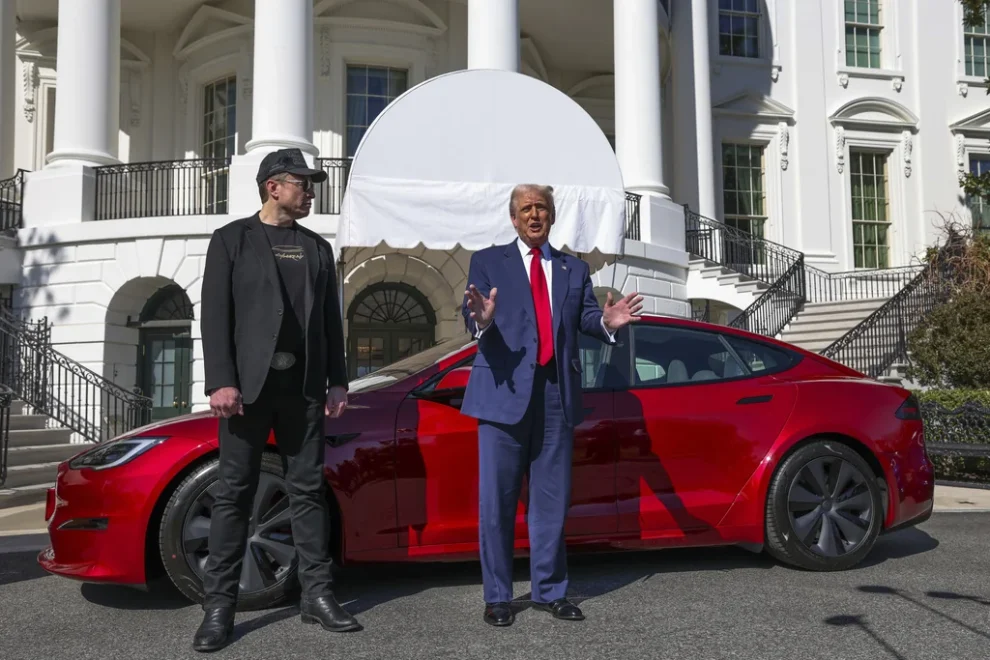Elon Musk stands to lose big from President Donald Trump’s domestic policy bill in Congress, leaving some Republicans to suggest the billionaire tech mogul’s interests are to blame for his sudden disdain toward the megabill.
The One Big Beautiful Bill Act, which the Tesla owner abruptly torched as a “disgusting abomination” for adding to the deficit, includes the repeal of electric vehicle tax credits and other green energy tax incentives that stand to hurt Musk’s business ventures.
“He’s lost all of the EV credits. He’s going to lose billions of dollars by this,” said Senate Majority Whip John Barrasso (R-WY), adding that Congress also rolled back the ability for states to phase out gas-powered vehicles. “We defeated all of those, and those are all going to cost Elon Musk.”
House Speaker Mike Johnson (R-LA) has also cited Musk’s apparent conflicts of interest.
“I know that the EV mandate is very important to him. That is going away because the government should not be subsidizing these things as part of the Green New Deal. I know that has an effect on his business, and I will admit that,” Johnson said.
The Washington Examiner could not reach Musk for comment.
The bill would phase out EV tax credits of up to $7,500 after 2026, claw back spending to boost battery manufacturing, and impose an annual $250 fee for EV drivers to offset the loss of gas taxes paid at the pump. The House passed the measure last month and is currently being considered by the Senate.
Rep. Rich McCormick (R-GA), who’s mulling a Georgia Senate run against Sen. Jon Ossoff (D-GA), offered a curt assessment of whether Musk’s opposition might stem from the bill nixing clean energy components: “I’m sure. Of course.”
Emphasizing Musk’s bottom line offers Republicans an avenue to downplay his defection as leaders work behind the scenes to quash any fallout. But it also exposes an admission that the party was previously unwilling to concede about the benefits the world’s richest man stands to gain from his proximity to the administration and government policies.
For his part, Musk says his opposition is centered on numerous projections showing the bill would grow the deficit by around $2.5 trillion over the next decade and went so far as to say Republicans should start from scratch. Musk departed from his government cost-cutting role at DOGE just days before a barrage of criticism on social media.
“Call your Senator, Call your Congressman, Bankrupting America is NOT ok! KILL the BILL,” Musk said in a series of tweets Wednesday. “America is in the fast lane to debt slavery.”
Musk stated in his initial criticism Tuesday that the “massive, outrageous, pork-filled Congressional spending bill is a disgusting abomination. Shame on those who voted for it: you know you did wrong. You know it.”
Johnson and Barrasso, who unpromptedly cited Musk’s business ties to government subsidies, stopped one step short of listing them as the explicit reason for his revolt.
Johnson claimed on Wednesday that a reporter first brought up the subject during his initial response on Tuesday.
“I don’t subscribe motive to anybody. I try not to do that,” the speaker said.
Other Republicans have taken Musk at his word, which largely aligns with concerns expressed by budget deficit hawks such as Sens. Ron Johnson (R-WI) and Rand Paul (R-KY).

“I think that he just spent 90 to 100 days looking at gobs and gobs of spending porn, which triggered his gag reflex, and he wants to do something about it,” Sen. John Kennedy (R-LA) said.
Rep. Thomas Massie (R-KY), who voted against the bill in the House last month, believed Musk changed his mind because it failed to meet promises made by GOP leadership to slash federal spending and the deficit.
“I think his trust was misplaced,” said Massie, according to Fox News. “I think he has a right to be upset with our leadership. It may be why he left his role in the government. He started to figure out [that] most guys aren’t serious about cutting spending. They never were.”
The elimination of the EV credits and other green energy tax incentives from the Biden-era Inflation Reduction Act is designed to help offset the cost of extending the Trump-era income tax credits, which are poised to expire this year.
But the clean energy components have created consternation among some Republicans in Congress, such as Sen. John Curtis (R-UT), who put Musk’s sway over him at “zero.”
“I want Republicans to be thoughtful but not reactive,” Curtis said. “Just because it was in the IRA doesn’t make it bad.”
ELON MUSK TURNS CONGRESS UPSIDE DOWN AFTER TORCHING TRUMP’S ‘BIG, BEAUTIFUL BILL’
Other theories abound for Musk’s public rebellion, including Trump withdrawing Jared Isaacman, an ally of Musk, from nomination as NASA administrator.
“I think they’ve suggested [the EVs] because they’re trying to blunt the criticism,” Sen. Tim Kaine (D-VA) speculated. “I bet the Trump team deciding not to go forward with that NASA guy might’ve been the last straw.”
Lauren Green contributed to this report.
























